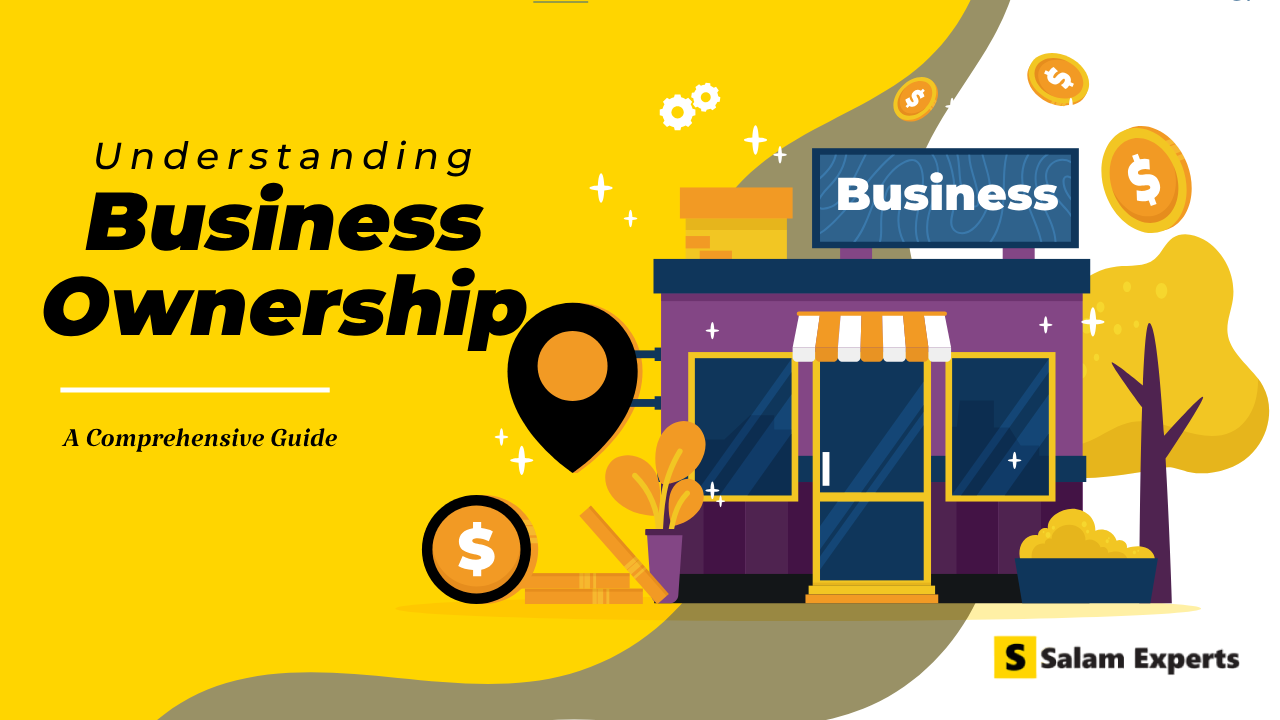Understanding Business Ownership: A Comprehensive Guide

Navigating the world of business ownership can be complex, but understanding the various types of business ownership can help you make informed decisions. Whether you’re starting a new venture or considering transferring business ownership, this guide covers everything you need to know about the different types of business ownership and their implications.
Key Highlights
- This guide explores various forms of business ownership, including sole proprietorship, partnership, corporation, LLC, cooperative, and franchise.
- Each structure has its advantages and disadvantages. Key factors to consider when choosing include liability, taxation, control, and long-term goals.
- Sole proprietorships are simple to set up but offer unlimited liability. Corporations provide limited liability but are complex and taxed twice. LLCs offer a balance between corporations and partnerships, with limited liability and pass-through taxation.
What is Business Ownership?
Business ownership refers to the legal control over a business entity. This involves making decisions, bearing financial risks, and enjoying profits. The structure of ownership in a business affects how a business operates, is taxed, and is managed.
Types of Business Ownership
Understanding the various types of business ownership is crucial for choosing the right structure for your business. Here are the main forms:
1. Sole Proprietorship
A business owned by one person.
- Overview: The simplest and most common form of business ownership.
- Business Structure: Owned and operated by a single individual.
- Legal Authorities: The owner has full control and unlimited liability.
Pros:
- Easy to set up
- Complete control
- Straightforward tax filing
Cons:
- Unlimited personal liability
- Limited capital access
Real-life examples: Freelancers, and small retail shops. Famous sole proprietorship examples include local shops and individual consultants.
Struggling to manage the complexities of your business operations? Explore the best AI tools for business to streamline your processes and boost efficiency.
2. Partnership
A business owned by two or more people.
- Overview: Two or more individuals share ownership of a business.
- Business Structure: These can be general or limited partnerships.
- Legal Authorities: Partners share profits, losses, and management responsibilities.
Pros:
- Shared resources and expertise
- Relatively easy to establish
Cons:
- Joint liability
- Potential for disputes
Real-life examples: Law firms, and medical practices.
3. Corporation
A business entity that is legally separate from its owners.
Overview: Complex structure providing limited liability to its owners.
Business Structure: Managed by a board of directors and owned by shareholders.
Legal Authorities: Separate legal entity, limited liability for shareholders.
Pros:
- Limited liability
- Easier access to capital
- Perpetual existence
Cons:
- Costly and complex to set up
- Double taxation
Real-life examples: Apple business ownership, Microsoft.
worried about managing your small business finances? Discover the best bank services for small businesses!
4. Limited Liability Company (LLC)
A hybrid structure that offers the benefits of both a corporation and a partnership.
Overview: Combines the liability protection of a corporation with the tax benefits of a partnership.
Business Structure: Owned by members, flexible management structure.
Legal Authorities: Limited liability, pass-through taxation.
Pros:
- Limited liability
- Flexible management
- Tax advantages
Cons:
- More paperwork than a sole proprietorship
- Can be costly
Real-life examples: Many small to medium-sized businesses.
5. Cooperative
A business owned and operated by a group of individuals for their mutual benefit.
Overview: Members of the cooperative share the profits and decision-making responsibilities.
Business Structure: Democratically controlled by member-owners.
Legal Authorities: Governed by the principles of shared ownership in business and democratic decision-making.
Pros:
- Equal voting rights
- Shared financial risk
- Community-oriented
Cons:
- Limited capital raising ability
- Slower decision-making process
Real-life examples: Credit unions, agricultural cooperatives.
Finding it challenging to stand out in the pet business market? Get Inspired with innovative strategies that can help your pet business thrive.
6. Franchise
A business model where individuals can own and operate a branch of an established company.
Overview: Franchisees buy the rights to operate under the brand name and business model of a franchisor.
Business Structure: Franchisees operate independently but follow the franchisor’s rules and guidelines.
Legal Authorities: Franchise agreements outline the rights and responsibilities of both parties.
Pros:
- Access to a proven business model
- Brand recognition
- Support from the franchisor
Cons:
- High initial costs
- Ongoing fees
- Limited operational control
Real-life examples: McDonald’s, and Subway.
Factors to Consider When Choosing a Business Ownership Type
Choosing the right business ownership type depends on several factors:
- Liability: How much personal liability are you willing to assume?
- Taxation: Consider the tax implications of each structure.
- Control: How much control do you want to maintain?
- Capital: Consider your access to capital and funding requirements.
- Continuity: Think about the long-term goals and continuity of the business.
- Administrative Burden: Consider the complexity and cost of administrative requirements.
Is your business bogged down by manual tasks? Maximize your business efficiency with the best automation tools available.
Conclusion
Choosing the right form of business ownership is critical to the success of your business. Whether you opt for a sole proprietorship, partnership, corporation, LLC, cooperative, or franchise, understanding each type’s pros and cons will help you make an informed decision that aligns with your business goals.
Disclaimer: The information provided in this blog is for informational purposes only and should not be considered legal or financial advice. Always consult with a professional for specific guidance tailored to your situation.
Author

We are a digital marketing agency with over 17 years of experience and a proven track record of helping businesses succeed. Our expertise spans businesses of all sizes, enabling them to grow their online presence and connect with new customers effectively. In addition to offering services like consulting, SEO, social media marketing, web design, and web development, we pride ourselves on conducting thorough research on top companies and various industries. We compile this research into actionable insights and share it with our readers, providing valuable information in one convenient place rather than requiring them to visit multiple websites. As a team of passionate and experienced digital marketers, we are committed to helping businesses thrive and empowering our readers with knowledge and strategies for success.
View all posts

